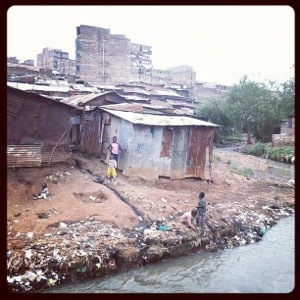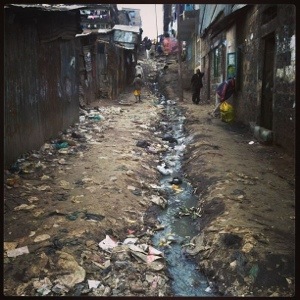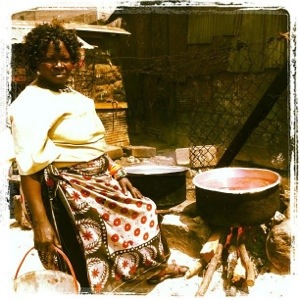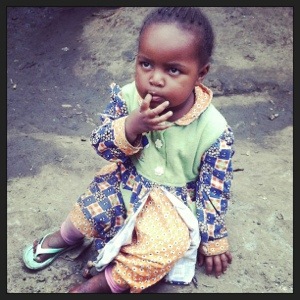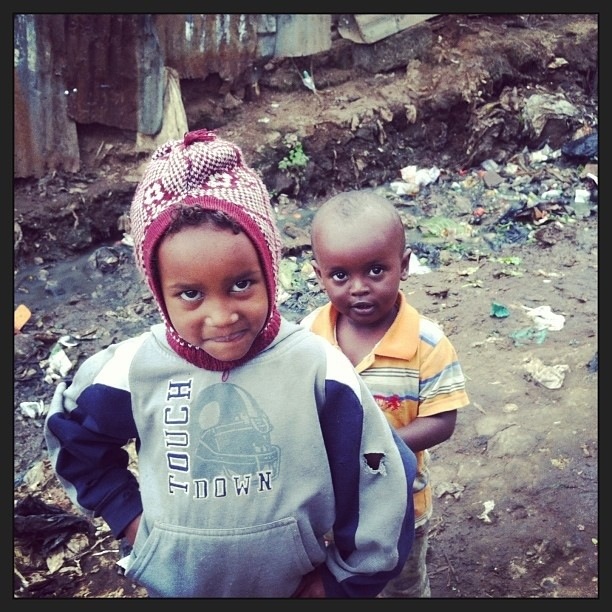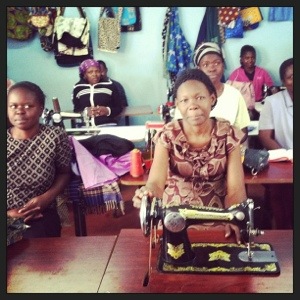 Candyce is going to have surgery in Kampala on Saturday. After repeated–and excrutiating–bouts of abdominal pain, she reluctantly visited a local hospital and had an ultrasound done last week. And discovered she was the proud parent of a 1/2″ gallstone!
Candyce is going to have surgery in Kampala on Saturday. After repeated–and excrutiating–bouts of abdominal pain, she reluctantly visited a local hospital and had an ultrasound done last week. And discovered she was the proud parent of a 1/2″ gallstone!
This news required a decision to be made. Should she leave Steven, fly back to Oregon and pay $10,000 for gallbladder surgery? (They don’t have insurance). Or should she risk having the procedure done right there in Kampala? Candyce has been in and out of enough third world countries to know that could be a sketchy choice. But she was told about a doctor from the UK who flies to Kampala once a month and only does laproscopic gallbladder removals. He only operates at the most modern (westernized) hospital in town.
And he just happens to fly in this week!
So after lots of prayer and advice-gathering, she’s opted to have surgery this weekend. The operation will happen Saturday morning (which will be Friday night, west coast time, if you’d like to pray too). She’ll stay overnight and then go home on Sunday if all goes well. My doctor friend, Bruce, said his biggest concern is Candyce picking up an infection during her recovery at the hospital . . .
Even though I haven’t traveled much internationally, I do have some experience with sketch hospitals. In 1992, we took our three young daughters and did a DTS with YWAM out of Chico, California. A DTS, which stands for Discipleship Training School, typically involves three months of training at the YWAM base and then two months of outreach. Our outreach was in Mexico.
For two months we traveled from village to village, doing YWAMy things (dance, drama, helping local pastors, etc.). About midway through our outreach, we went to a small village on the outskirts of a town called Compastella. Our time there just happened to coincide with the feast of Saint Agatha, a holy day that the locals celebrated with fireworks and a marching band. And the festivities started at 3 in the morning . . .
Always a light sleeper, I was roused from slumber by the ruckus. After an hour of torment, I realized they intended to party until dawn. Desperate, I crafted ear plugs from a bit of toilet paper. When that didn’t help, I remembered using prenatal vitamins as impromtu earplugs at a ladies retreat (my roomie was a snorer).
I didn’t have any prenatal vitamins with me in that village, but I rummaged through my stuff and found a bottle of Mexican aspirins. I stuck two of the small, button-shaped tablets in my ears and was delighted at how they muffled the hellish parade. I slept soundly until morning.
The first aspirin popped out easily, but the second–in my left ear–had somehow worked itself so far down that I couldn’t get it out. Somewhat panicked, I had the bright idea of rinsing my ear canal with hydrogen peroxide and letting that dissolve the aspirin and flush it out.
It dissolved the aspirin, all right. But the sludge slid even farther down and adhered to my ear drum. This might seem like a big deal, but consider that the main ingredient in aspirin is salicylic acid. I was shocked by how much pain that little tablet caused.
I was also mortified because I had to tell Greg–and our teammates–what I’d done. Once my team stopped laughing, it was decided that I needed to go to the hospital in Compostella, about an hour drive from the village. Trying to look brave, I waved goodbye to my girls and headed to the hospital in a battered pickup truck (the driver, our translator, Greg and myself were all packed in the dusty front seat).
I won’t even tell you about the reaction we got at the hospital after our translator explained our situation. I’m pretty sure I was the first person they’d ever seen with an aspirin stuck in her ear canal. A nice nurse, trying hard not to stare at me, ushered me quickly out of the waiting room (and unabashed stares) into an exam room.
Or at least she tried.
Just walking down the hospital corridor was a cultural experience. We literally had to step over, or manuever around, dogs that were napping in the hallways. Smelly bedpans were stacked in random intervals, waiting to be emptied. At we followed the nurse, I tried to stay calm, but gasped out loud when she opened the door to my exam room and motioned for me (and my entourage–Greg and the interpreter) to go on in.
There was a naked Mexican man laying on the exam table!
I’m not sure if he was waiting for a doctor–or just trying to catch a few winks–but the nurse was not happy with him. She morphed into Nurse Crachett, barking orders at the trembling man as he tried to pull his pants up. After he’d scurried off, the nurse indicated she wanted me have a seat on the exam table–not even bothering to wipe off the sweaty spot where the man’s butt had previously been!
She bustled off to get the doctor and I tried not to burst into tears as I took in the blood-spattered walls and filthy floor. I almost bolted, but the pain in my ear restrained me. When the doctor arrived, I was relieved to learn she spoke a little English. Maybe this wouldn’t be so bad after all . . .
With the help of my interpreter, I explained my situation once again. The doctor had me lay on my right side and took a look in my left ear. Shaking her head, she explained that the dissolved aspirin was soundly stuck to my ear drum.
“This might hurt a little,” she explained as she poked very sharp objects deep into my already sore ear and began scraping.
It hurt like crazy–and I admit, I cried. Greg held my hand, the interpreter made clucking noises, and the doctor dug for about 20 minutes. She then rinsed the ear canal and had another look with the otoscope.
“I got most of it,” she said. “But I couldn’t help scratching the ear drum in the process. I want you to come back here in a week so I can make sure it doesn’t get infected.”
We agreed, and then she asked if I wanted anything for the pain.
“Yes!” I enthusiastically responded. The doctor went to fetch the nurse, who walked in several minutes later with a large syringe filled with dark fluid. I asked what it was, since I am allergic to a certain painkiller. My interpreter spoke with the nurse for a few minutes, trying to figure out the English name for the drug–but to no avail.
The ended up giving me a shot of valium, which didn’t take away the pain but made me not care that I was hurting. Seeing that I didn’t keel over after the injection, the nurse handed Greg two more syringes to give me when the first shot wore off.
“This could be kind of fun,” he smirked as we made our back to the reception area to pay our bill.
The grand total of my treatment–including the 3 vials of valium–came to $18 US! I don’t even think the doctor charged me when she rechecked me ear the following week. It wasn’t infected, she told me, but there was scarring. In fact, to this day, I sometimes have trouble hearing Greg when we are on a road trip.
Which is why I’m praying for Candyce . . .
